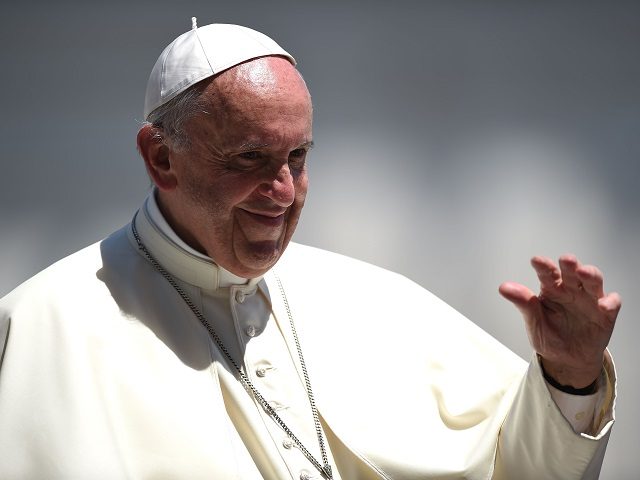In modern society, trade unions risk losing their “prophetic character” and becoming just like the institutions they ought to be criticizing, Pope Francis told a group of union delegates Wednesday morning, adding that “corruption has entered the hearts of some trade unionists.”
The Pope said that trade unions have a prophetic nature, which is their “truest vocation,” meaning they are called to expose injustice and fight for the rights of the weakest and most vulnerable. They betray this mission when they become just another power structure alongside other power structures.
“Unions were founded and are reborn every time, like the biblical prophets, they give a voice to the voiceless,” Francis said to the group assembled in the Vatican, “unmasking the powerful that trample on the rights of the most fragile workers, defending the cause of the alien, the least, and the ‘discarded.’”
“But in our advanced capitalist society,” he continued, “unions are in danger of losing this prophetic nature, and becoming too similar to the institutions and powers that instead they should be criticizing.”
“Over time, unions have come to resemble politics too closely, or rather, political parties, with their language and their style. And if this typical and distinct dimension is missing, their action in businesses loses strength and effectiveness,” he said.
Francis added that the capitalism of our time “does not understand the value of unions, because it has forgotten the social nature of the economy, business, life, relationships and agreements.”
The Pope also declared that unions are called to be “watchmen,” but not only for their own members, but for the entire world of work. Despite his well-known dislike of walls, Francis compared unions to those who patrol the walls of the city to keep its inhabitants safe from invasion.
“Unions must watch over the city walls like sentinels watching over and protecting those who are inside the city of work,” he said, but they should also “protect even those who are outside the walls.”
“A union does not carry out its essential function of social innovation if it guards only those who are inside, if only protects the rights of those who are already working or are retired,” he said. “This has to be done, but it’s only half your job. Your calling is also to protect those who as yet have no rights, those excluded from work and those excluded from rights and from democracy.”
In his address, Francis sketched his own theory of work and business enterprises, underscoring the close relationship between the human person and work. Of course, “the person is not just work,” he said, and many people do not work simply because they shouldn’t.
Among those who should not work, Francis placed children and the elderly.
Even today, he said, “there are still too many children in the world who work and do not study, while study is the only good ‘employment’ for children and young people.”
Similarly, it is “a foolish and shortsighted society that forces the elderly to work too long and requires an entire generation of young people not to work, when they should be doing it for themselves and for everyone,” he said.
“When young people are absent from the work world, enterprises lack energy, enthusiasm, innovation, and joie de vivre, which are precious common goods that make for a better economic life and public happiness,” he added.
Regarding retirement, the Pope stressed that pensions should be fairly uniform so as not to exacerbate economic inequalities.
A fair pension, Francis said, is one that is “neither too poor nor too rich,” adding that “‘golden pensions’ are no less serious an offense to work than pensions that are too poor, because they make the inequalities in work become perennial.”
Follow Thomas D. Williams on Twitter Follow @tdwilliamsrome

COMMENTS
Please let us know if you're having issues with commenting.